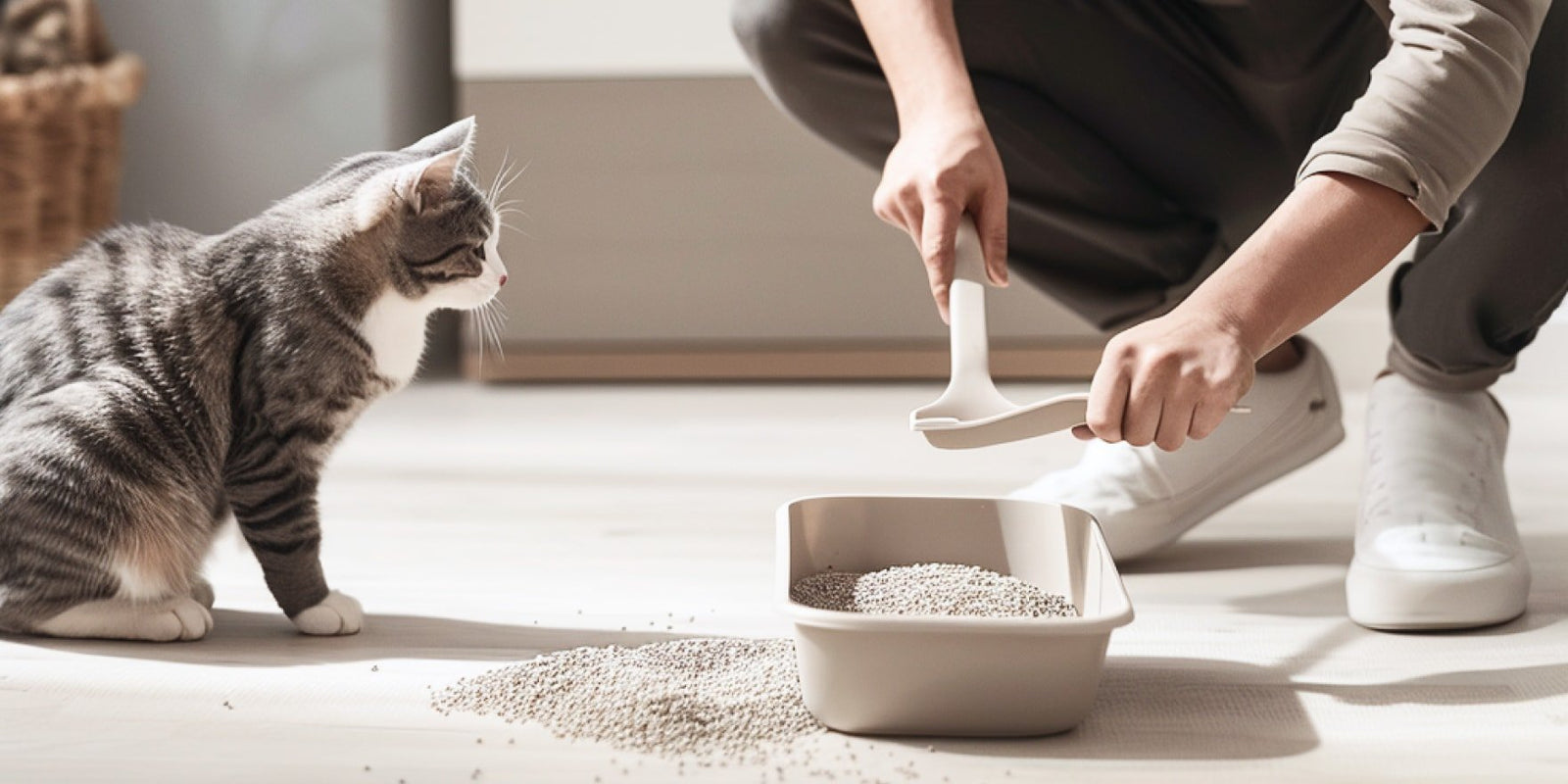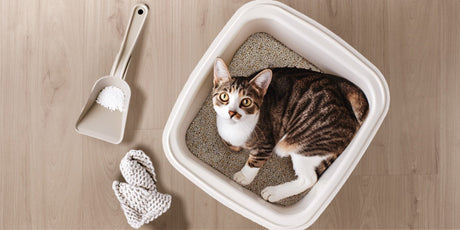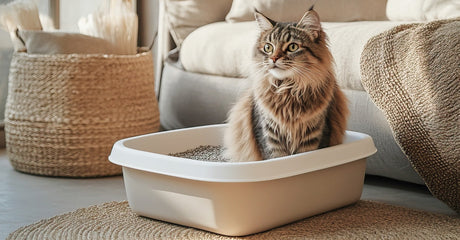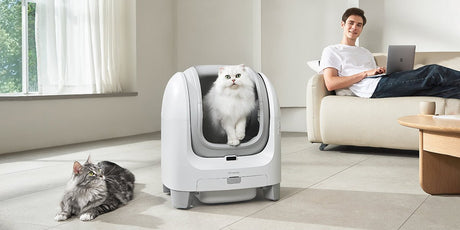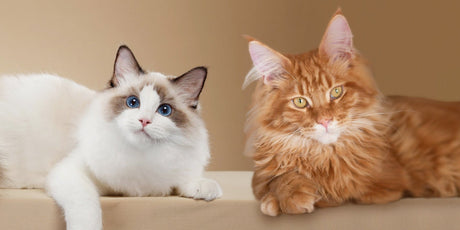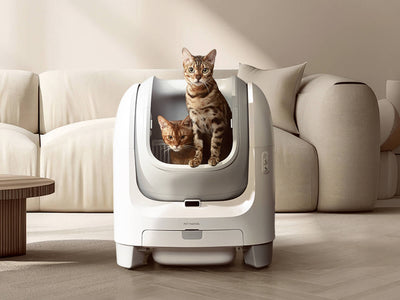When you have this question, it may be due to the following behaviors of your cat:
1. They are shocked or even try to stop you from cleaning the litter.
2. They watch you while you clean the litter box.
3. They immediately go to the litter box after you finish cleaning.
Please don't misunderstand, this doesn't mean they dislike you cleaning the litter box. To understand the reason, we need to start with the habits of cats' ancestors, such as how wild cats hide their traces to avoid being detected by predators, or how they mark their territory. Domestic cats and wild cats may differ, but their instincts remain.

Why does your cat exhibit these behaviors?
Your cat works hard to bury its waste in the litter to mask the smell, and when you come over and unearth it, your cat might initially find this strange or even be shocked or angry. When your cat realizes that you, as a "big wild cat," do not have a litter box like it does, but instead possess a strange toilet with magical flushing abilities, it becomes a mystery for the cat.
When you remove their feces, they worry that it might expose their scent and attract predators, putting you in danger. To protect you, they may carefully observe your process of cleaning the litter box, which explains why your cat watches you clean. However, over time, they realize that this action does not pose a danger, so they may reduce their "protection" behavior accordingly.
When your cat jumps into the litter box immediately after you finish cleaning, it does not mean they are asserting their dominance in the household or that you are merely their servant catering to their needs. Rather, they prefer a clean space and are marking their territory.

Cats' Nature and Hygiene Habits
Cats are inherently very clean animals and do not like to defecate in unclean environments. Therefore, regularly cleaning the litter box is not only necessary but also key to maintaining good hygiene practices for your cat. If the litter box is not cleaned for an extended period, cats may feel uncomfortable and even choose to eliminate it elsewhere. Regularly cleaning the litter box is not just for the comfort of the cat but also for the owner's health. A litter box that is not cleaned promptly can easily breed bacteria and parasites, which can be harmful to both parties.
Cats usually regard the litter box as a safe and private place; it is an essential facility for them that helps keep them clean and comfortable while also being part of their environmental control. For cats, the cleanliness, location, and type of the litter box can all influence their usage habits. Some cats may be sensitive, and the actions or sounds made by the owner during cleaning may make them feel anxious. Therefore, it is helpful to be gentle and minimize noise while cleaning to keep the cat comfortable.

Do They Dislike Using The Litter Box After You Clean It?
This is often not simply because you cleaned the litter box, but due to some more complex reasons.
1. Using cleaning agents: Using strong-smelling cleaning agents, such as disinfectants or fragrances, might make the cat uncomfortable or repelled. It is safer to clean the litter box with warm water, unscented soap, or specialized pet cleaning products.
2. Frequent cleaning: If you clean thoroughly too often (e.g., emptying and disinfecting multiple times a day), the complete absence of smell may make the cat feel uneasy. It is recommended to scoop the litter 1-2 times daily and change the litter completely once a week.
3. Changing the type of litter: Different cats may have different preferences for litter types. Some cats prefer fine sand, while others lean towards granulated litter. Arbitrarily changing the type of litter may lead the cat to refuse to use the litter box.
4. Changing the litter box location: Cats have certain preferences for where their litter box is placed. If the litter box is located in a noisy, busy, or unsafe area, the cat may feel uncomfortable and reluctant to use it.

Conclusion
Cats do not "dislike" cleaning their litter box; rather, they have specific requirements regarding the method, frequency, and environment of the cleaning process. As long as the owner meets these needs, the cat will be more willing to use the litter box and maintain good hygiene practices. By understanding the nature and preferences of cats, owners can better care for them and establish a harmonious pet life.

